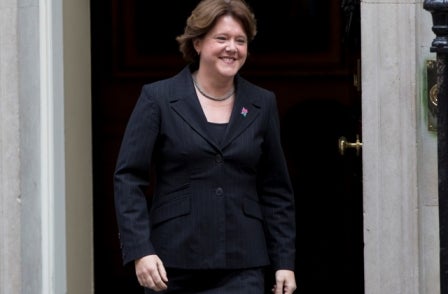
Culture Secretary Maria Miller last night issued a statement on press regulation which appears to indicate continued support for the Parliament-backed regulation scheme.
She confirmed that a rival Royal Charter on press regulation put forward by the majority of the newspaper and magazine industry via Pressbof would be considered by the Privy Council next Wednesday.
But it appears that this may just be a legal formality before the tougher, statute-backed cross-party Royal Charter goes back to the Privy Council in the autumn.
Press Gazette understands that next week’s meeting – and the subsequent one in the Autumn – will only be attended by Privy Councillors who are Government ministers.
So the decision on what system of press regulation to go for, if either, still lies with the Coalition Government.
The Pressbof Royal Charter does not have the backing of The Guardian, Financial Times or Independent titles.
And today The Guardian said in an editorial that the transcript of Rupert Murdoch’s March meeting with arrested Sun journalists provides evidence there has been no “culture change” on Fleet Street in the wake of the News of the World hacking scandal.
In March, Murdoch indicated that that he was aware of the culture of illegal payments on Fleet Street and sided with journalists against “incompetent” police.
He appeared to indicate that he saw nothing wrong with journalists’ paying public officials – and said that arrested staffers had his “total support”.
The Guardian said today: “There is zero evidence here of the kind of culture change needed to restore public confidence in the press….the Murdoch tapes are one more reminder of the pressing need to restart negotiations and agree a regulatory system that works.”
Culture Secretary Miller said that work is ongoing on the cross-party press regulation Royal Charter and that this scheme “continues to have cross-party support”. She said that an updated version of the cross-party Royal Charter is set to be published in due course.
But if that charter is rubber-stamped by the Privy Council later this year there seems little prospect that many newspapers would sign up to it.
Regional newspapers in particular have expressed alarm that a mandatory free libel arbitration service will be included in the new Parliament-backed regulator. They fear this would leave them open to “crippling costs”.
Newspaper owners are also concerned that under the Government scheme they would have no say over who runs the new regulator.
Here is the statement on press regulation from Maria Miller in full.
On 18 March 2013, we reached agreement about how we could deliver a new system of independent and robust self-regulation for the press as recommended in the report of Lord Justice Leveson. I want to update the House on developments since then.
The cross party agreement, which continues to have cross party support, included a Royal Charter to set up a verification body for a new independent press regulator; elements of legislation needed to secure the incentives for newspapers to participate; and a “no change” provision that protects the charter from future political interference. We have delivered those incentives through the provisions included in the Crime & Courts Act 2013 and the Enterprise and Regulatory Reform Act 2013.
On 30 April 2013, the Press Standards Board of Finance (PressBoF) formally petitioned the Privy Council Office with an alternative draft Royal Charter . When any petition for a Royal Charter is received by the Privy Council Office (PCO) it asks for an initial view from relevant Government departments. This guides whether the Royal Charter should go forward for Privy Council consideration. On this occasion, Government has also taken advice from Counsel to ensure the procedure it follows is robust.
I will be requesting that the petition is added to the list of Privy Council business.
Cross-party discussions on the royal charter concluded on 18 March and a copy of that Charter was deposited in the libraries of both Houses. Work has continued to prepare the charter published on 18 March for formal submission to the Privy Council. Following the vote in the Scottish Parliament on 30 April, discussions have been held with the Scottish Government about the technical changes necessary to ensure its application in Scotland. The Commissioner for Public Appointments, who carries specific responsibilities under the Charter, has also been consulted. Finally, a legal technical review of the Charter has been undertaken as part of an overall assurance process. I will be publishing an updated version of the cross-party Charter in due course.
We continue to support implementing the system of tough, independent self-regulation that Lord Justice Leveson recommended that protects a free press and delivers for the public and, especially those who are victims of press abuse. The Press are making progress on setting up their self-regulator, which is an integral part of the process outlined by the Leveson report.
Email pged@pressgazette.co.uk to point out mistakes, provide story tips or send in a letter for publication on our "Letters Page" blog
